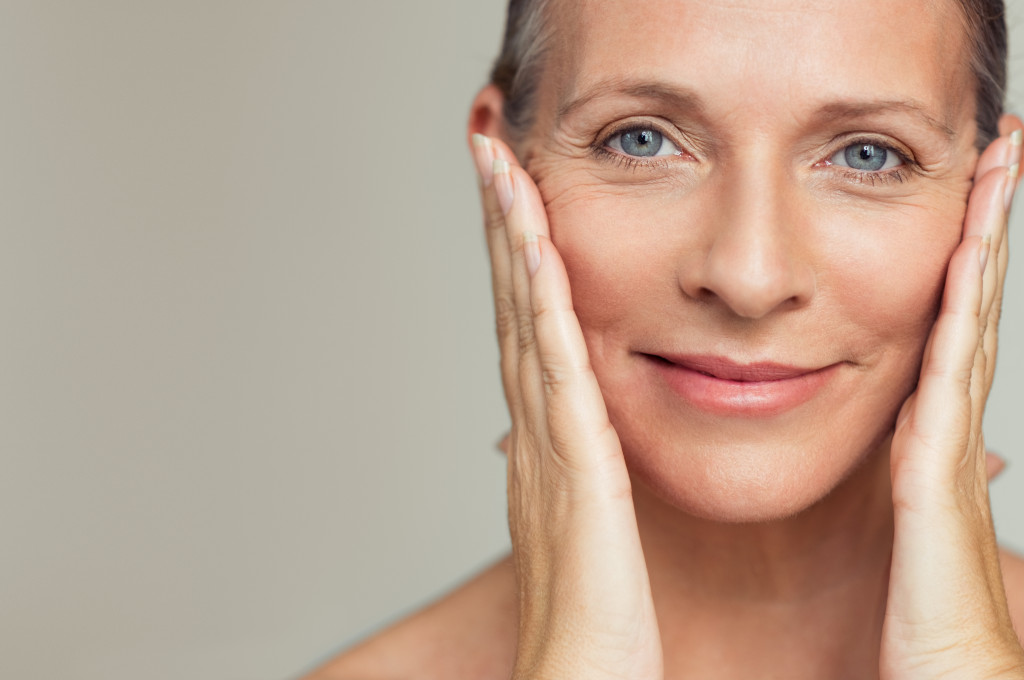Taking care of one’s skin is essential to leading a healthy lifestyle. With the increasing awareness of the effects of poor skin care, more and more people are taking measures to protect their skin. This is especially important because it protects against infection and other environmental pollutants. In addition, it acts as a barrier between our internal organs and the external environment. It is also responsible for regulating body temperature, absorbing nutrients from food, and producing Vitamin D from sunlight exposure.
You cannot deny the importance of skincare – but what are the exact benefits? Maintaining good skin health helps keep us looking young and vibrant. Proper skincare practices can help reduce signs of aging by protecting the body from oxidative damage caused by free radicals. This damage is associated with wrinkles, fine lines, sagging skin, age spots, and other signs of premature aging. Furthermore, proper skin care can help protect against certain cancers, such as melanoma and basal cell carcinoma, linked to UV radiation exposure. Additionally, good skin care helps maintain a healthy complexion by reducing blemishes or acne breakouts.
In terms of statistics surrounding skincare benefits, research shows that almost half (45%) of Americans prioritize anti-aging products in their skincare routines – this number increases to about two-thirds (65%) among those aged 25-35 years old. Additionally, a survey conducted by Kiehl’s Skin Care Survey in 2019 found that nearly four out of five (80%) Americans believe that regular sun protection is essential to good skin health – yet only one out of fifth use sunscreen daily!
It will be necessary to maintain proper skincare habits to reap the full benefits. Still, you might need to do more to achieve healthy, glowing skin. Here are a few tips to help you care for your face more when skincare routines feel like they are not enough.
Visit the Dermatologist
Many people take their skincare into their own hands and attempt to follow a routine that they believe is best for their skin. This often includes using various products, such as face cleansers, moisturizers, sunscreens, and other products containing active ingredients. While this approach may be beneficial in some cases, the results are often unpredictable or unsatisfactory due to differences between individual skin types and conditions. Consulting a dermatologist is the best solution for those with specific skin issues or who want to optimize their skin health.
Another benefit of visiting a dermatologist is that they can detect any early signs of skin cancer which is often difficult to recognize by oneself due to its varying appearances – from minor bumps or moles to larger areas with irregular borders. Early detection can significantly reduce the chances of developing serious problems later on.
Getting Proper Sleep
Most people know that adequate sleep is essential for overall health and well-being. The same applies to skin health – not only does it help promote a healthy complexion, but it can also reduce signs of aging due to its ability to repair the body’s cells.
Getting adequate sleep every night helps restore your body’s natural balance, calm inflammation and irritation, rehydrate the skin and stimulate collagen production for youthful-looking skin. Proper sleeping habits can also increase alertness during the day, preventing dark circles from forming around the eyes caused by fatigue or lack of sleep.
A person must get 7-9 hours of sleep every night to get the full benefits – anything less will have detrimental consequences. Therefore, it is essential to practice good sleeping habits by going to bed early and avoiding late-night activities or meals before bedtime.
Eating Nutritious Diet

Food can impact your skin’s health just as much as skincare products and treatments. Eating foods rich in vitamins A, C, and E can help reduce inflammation and breakouts while promoting a healthy complexion.
On the other hand, consuming processed foods and refined sugars can lead to an unhealthy appearance of your face by clogging pores, increasing oil production, and triggering breakouts.
Including plenty of fruits and vegetables in your diet is vital for providing the skin with essential antioxidants that prevent damage from external pollutants or exposure to UV rays. Omega-3 fatty acids have also been linked to improved hydration levels and fewer wrinkles. Other beneficial ingredients include green tea, dark chocolate, legumes, nuts & seeds, and whole grains.
Finally, drinking plenty of water is essential to keep the skin hydrated and prevent premature aging. Additionally, alcohol can cause dehydration, exacerbate existing skin conditions, or decrease protective barriers against external damage. Therefore, you should consume it in moderation.
Considering Cosmetic Procedures
Unfortunately, signs of aging might still come naturally despite taking all the proper steps to care for your skin. In this case, it may be necessary to consider medical cosmetic procedures such as laser treatment, microdermabrasion, fillers, or botox.
These treatments can help undo the effects of aging and sun damage while improving the overall appearance of facial features. However, they should only be used as a last resort after consulting with a professional who can recommend the best option for each person’s needs.
Your cheeks are your most prominent facial feature and crucial to your overall appearance. If skincare routines are insufficient, you can seek cheek enhancement procedures to help improve your appearance. The changes you can make with these treatments range from subtle contouring to more dramatic reshaping. Additionally, fat transfer and fillers can plump up hollow or sunken cheeks that may have been caused by aging.
Final Thoughts
The key to taking good care of your face is establishing a daily routine with the right combination of products, treatments, nutrition, and lifestyle changes. You should tailor these steps to your needs based on skin type, concerns, and desired outcomes.
It also helps to get regular checkups with a dermatologist so that any issues can be identified early and treated accordingly. Ultimately, this will help you have healthier-looking skin for years to come.



